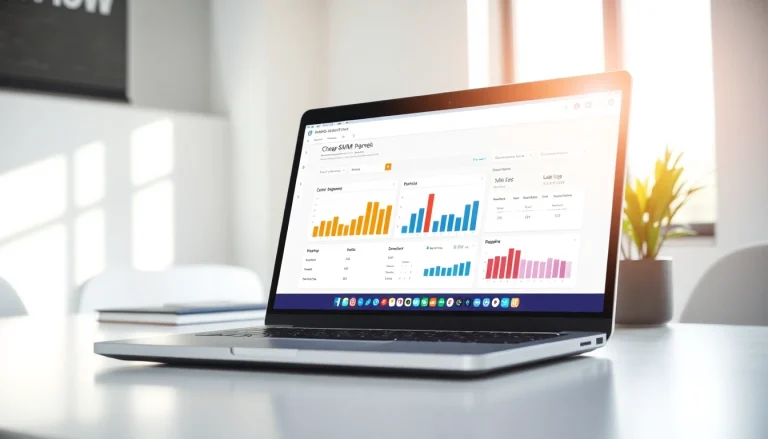
Understanding the Role of a Purchasing Consultant
In the dynamic landscape of business today, organizations continually seek ways to streamline their operations and enhance their profitability. One critical area where this can be achieved is through effective procurement management. This is where a purchasing consultant plays a pivotal role. By leveraging their expertise, businesses can optimize their purchasing strategies, resulting in significant cost reductions and improved supplier relationships.
What Does a Purchasing Consultant Do?
A purchasing consultant is a seasoned expert who assists organizations in identifying, acquiring, and managing the resources they need to operate effectively. Their primary responsibilities include analyzing procurement processes, developing sourcing strategies, negotiating contracts, and optimizing supplier networks. They work closely with company stakeholders to understand specific needs and tailor procurement strategies accordingly.
Additionally, purchasing consultants conduct market research to identify new supplier opportunities and ensure that best practices are implemented throughout the procurement process. They also provide training and support for in-house teams to ensure sustainable procurement practices moving forward. Ultimately, their role is to align purchasing strategies with overall business objectives, driving growth and efficiency.
The Importance of Procurement Strategies
Effective procurement strategies are essential for any business looking to maximize its operations. A well-structured procurement approach not only helps in cost savings but also improves product quality and availability. Purchasing consultants understand this critical connection and work to develop strategies that enhance operational efficiency.
Their contributions can range from identifying cost-saving opportunities to managing supplier performance and fostering innovation through collaborative relationships. Moreover, by implementing robust procurement strategies, organizations can mitigate risks related to market volatility and supply chain disruptions, ensuring more resilient operations.
Industries Benefiting from Purchasing Consultants
Purchasing consultants can provide invaluable support across various industries. Sectors such as manufacturing, retail, healthcare, and technology benefit significantly from their expertise. For example, in the manufacturing sector, purchasing consultants can help streamline supply chains, reducing lead times and costs. In retail, they can assist in optimizing inventory management, enhancing stock turnover rates, and improving supplier partnerships.
Healthcare organizations leverage purchasing consultants to negotiate better terms with suppliers, ensuring they acquire the necessary medical supplies and equipment at competitive prices without compromising quality. Similarly, the technology sector relies on purchasing consultants to navigate complex procurement processes associated with software and hardware acquisitions while staying ahead of rapid technological advancements.
Key Skills and Qualifications of a Purchasing Consultant
Essential Skills for Success
A successful purchasing consultant must possess a unique mix of skills that enables them to perform effectively in diverse environments. Key competencies include:
- Analytical Skills: The ability to analyze data, assess supplier performance, and identify cost-saving opportunities is crucial for developing effective procurement strategies.
- Negotiation Skills: Purchasing consultants must excel in negotiating contracts and agreements to secure favorable terms on behalf of their clients.
- Communication Skills: Strong interpersonal communication is vital for building relationships with suppliers and collaborating with internal stakeholders.
- Project Management: Effective project management skills help consultants oversee procurement initiatives and ensure they align with overall business objectives.
- Industry Knowledge: A deep understanding of the specific industry’s dynamics and trends allows for more strategic decision-making and advice.
Certifications and Training
While practical experience is vital, formal qualifications and certifications can significantly enhance a purchasing consultant’s credibility and effectiveness. Noteworthy certifications include the Certified Purchasing Professional (CPP) and the Certified Supply Chain Professional (CSCP). These credentials demonstrate expertise and a commitment to ongoing education in procurement best practices.
Continuous training through workshops, seminars, and industry conferences also facilitates staying updated on emerging trends and technologies in the procurement space. Aspiring purchasing consultants are encouraged to pursue education in business administration, supply chain management, or similar fields to build a solid foundational knowledge base.
How to Choose the Right Consultant
Selecting the right purchasing consultant is a critical step for any organization. Key considerations include:
- Experience: Evaluate the consultant’s background and prior projects to ensure they have relevant experience in your industry.
- Reputation: Seek recommendations from other businesses or check online reviews to gauge a consultant’s reliability and effectiveness.
- Alignment With Business Goals: Ensure the consultant understands your business objectives and can tailor their approach to meet them.
- Communication Style: A consultant’s ability to communicate effectively with your team is essential for collaborative efforts and ensuring alignment.
Benefits of Hiring a Purchasing Consultant
Cost Efficiency and Budget Management
One of the most significant advantages of hiring a purchasing consultant is their ability to provide cost efficiencies. By implementing strategic sourcing and negotiation techniques, consultants can help organizations reduce overall procurement costs. Their expertise in market analysis enables them to identify the best suppliers and products, ensuring that businesses do not overpay for goods and services.
Furthermore, purchasing consultants can assist in establishing more effective budget management practices that allow organizations to allocate resources wisely and monitor expenditures. This structured approach not only leads to immediate cost savings but can also offer long-term financial benefits.
Enhancing Supplier Relationships
Building and maintaining strong supplier relationships is vital for any organization’s success. Purchasing consultants excel in fostering these relationships through effective communication, negotiation, and collaboration. They can facilitate open dialogue between suppliers and clients, ensuring that both parties’ needs are met.
Consultants can also implement supplier performance measurement tools, helping businesses evaluate their suppliers and ensure continuous improvement in quality and service. These metrics assist in identifying underperforming suppliers and proactively addressing issues before they escalate, ultimately strengthening the supply chain.
Improving Supply Chain Performance
A purchasing consultant plays a critical role in enhancing overall supply chain performance. They leverage their market knowledge to streamline processes, minimize bottlenecks, and improve logistics. By optimizing procurement strategies, consultants can help organizations make more strategic decisions when it comes to inventory management and demand forecasting.
Implementing streamlined processes and embracing technology can lead to increased transparency and efficiency within supply chains. Thus, organizations not only reduce costs but also enhance their agility in responding to market changes.
Challenges Faced by Purchasing Consultants
Navigating Market Volatility
One of the significant challenges purchasing consultants face is navigating market volatility. Fluctuations in commodity prices, geopolitical tensions, and supply chain disruptions can drastically affect procurement processes. To combat these issues, consultants must remain attuned to market trends and adopt flexible sourcing strategies that can adapt to changing conditions.
Risk management strategies, such as diversifying supplier bases and maintaining appropriate inventory levels, can help mitigate the impacts of unforeseen market changes. By staying proactive, consultants can protect their clients from potential setbacks due to market volatility.
Dealing with Compliance and Regulation Changes
Another challenge for purchasing consultants is ensuring compliance with local, national, and international regulations. Procurement activities are often subject to laws that can change frequently, impacting how organizations operate. Purchasing consultants must stay informed about these regulatory changes and adapt compliance strategies accordingly.
Implementing robust compliance frameworks and conducting regular audits can help organizations navigate these challenges effectively, ensuring ethical sourcing practices and minimizing legal risks.
Adapting to Emerging Technologies
As technology continues to evolve rapidly, purchasing consultants must adapt to new tools and solutions that can enhance procurement processes. Technologies such as e-procurement platforms, blockchain, and artificial intelligence are revolutionizing how purchasing operations are conducted. While these innovations can offer significant advantages, the challenge lies in effectively integrating them into existing procurement structures.
Consultants must invest time in understanding these technologies and training their clients on their use. By embracing these advancements, organizations can improve efficiency, increase transparency, and make data-driven decisions in their purchasing activities.
Measuring Success When Working with a Purchasing Consultant
Key Performance Indicators to Track
Measuring the success of a purchasing consultant’s contributions is vital for understanding their impact on your business. Key performance indicators (KPIs) to track include:
- Cost Savings: The amount of money saved through improved procurement strategies and supplier negotiations.
- Supplier Performance: Metrics that assess how well suppliers meet quality, delivery, and responsiveness standards.
- Contract Compliance: The percentage of transactions that align with the negotiated terms and conditions.
- Lead Time Reduction: Improvements in the time it takes to procure goods, from order placement to delivery.
Evaluating ROI from Consulting Services
Evaluating the return on investment (ROI) from hiring a purchasing consultant is essential for justifying the expenditure. Organizations should analyze both direct and indirect savings achieved through the consultant’s strategies. This includes tracking the overall reduction in procurement costs, improved supplier terms, and enhanced efficiencies in procurement processes.
A thorough ROI analysis should factor in both the immediate financial benefits and longer-term impacts on supply chain management and organizational growth. This comprehensive evaluation can help organizations make informed decisions about future consulting engagements.
Continuous Improvement Initiatives
Working with a purchasing consultant should not be viewed as a one-time engagement but rather as part of a continuous improvement strategy. Establishing a culture of ongoing evaluation and adaptation within procurement practices can foster innovation and efficiency in the long run.
Consultants can facilitate regular assessments of procurement processes, encouraging businesses to seek out new improvement opportunities continually. This proactive approach not only enhances procurement performance but can significantly contribute to overall business success and competitiveness in an ever-evolving market landscape.






